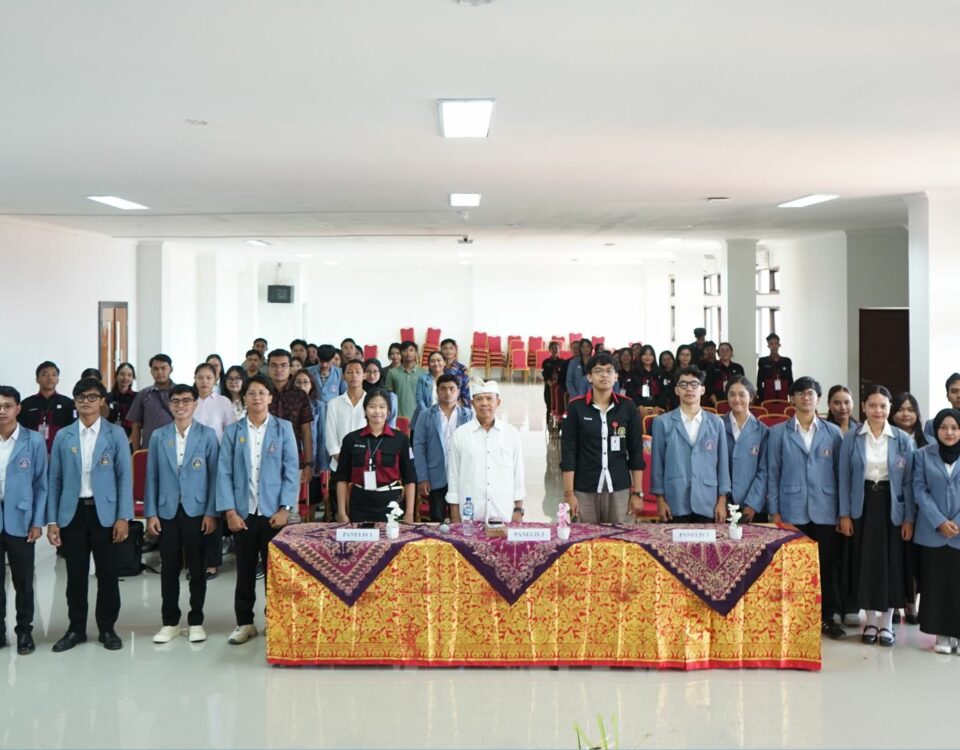Singaraja- Students of the Faculty of Law and Social Sciences (FHIS) of the University of Education of Ganesha (Undiksha) pay attention to the development of the agricultural sector at the Manik Tirta Livestock Farmers Group (KTT) in Pursuance Village, Kintamani District, Bangli, Bali. This development was carried out through the Holistic Village Development and Empowerment Program (PHP2D) which was initiated by the Ministry of Education and Culture.
The implementation of the program was demonstrated directly by the students who were part of the team by going directly to the field, Friday (9/10/2020). Working together, they transported scrap iron and pipes that would be used as raw materials for making bio-floc ponds. This activity synergizes directly with group members, including in working on other parts. This spirit of gotong-royong is at the same time one of the spirits of Pancasila and a hallmark of the character of the Indonesian nation.
PHP2D team leader, Luh Ayu Martasari explained the program’s main mission is to increase agricultural productivity and increase people’s economic income through the implementation of an integrated farming system for farmer groups. “So far the agricultural, livestock, and fishery activities carried out by the community are still carried out partially so that they have not been able to have a significant impact on improving the community’s economy,” she said.
Delivered further, an integrated agricultural system is expected to be able to create an ecosystem by integrating agriculture, animal husbandry, and fisheries will be able to reduce farmers’ production costs which have so far been very high. In addition, it can also utilize agricultural, livestock, and fishery wastes that were previously wasted immediately. In order to realize the program’s objectives, the team also collaborated with several NGOs, and professionals and received support from BEM and lecturers at the Ganesha University of Education. “This service activity has been running since September 19 2020 and is planned to be completed at the end of next November,” she explained.
Supervisor, I Wayan Pardi, S.Pd., M.Pd., said this activity was one of the students’ concrete actions in transferring modern agricultural techniques. Integrated farming systems emphasize recycling methods by utilizing plants and animals and even waste as partners to create an ecosystem that resembles the way nature works. “With this system, farmers will later obtain more diverse sources of harvest/income ranging from squash, catfish, hydroponic vegetables, sales of cattle/chicken, oranges, chilies, fertilizers, and biogas and most importantly there will be no agricultural, livestock and fishery waste that will be wasted,” he explained.
In this program, students develop several innovations including the construction of a biogas reactor to utilize cow dung which has not been optimally processed, the construction of fish ponds with the bio floc model, the construction of a hydroponic installation to produce organic vegetables, chayote cultivation, and training in processing cow dung into organic fertilizer as well as other innovative programs.
The Chairperson of the Manik Tirta Summit at Pengjaran Village, I Nyomna Sukanadi, responded positively to the implementation of this program. “In the future, hopefully, more and more students will go into the field like this to help farmers so that students can become lamps to illuminate farmers who are still stuttering about technology,” he said. (rls/hms)






